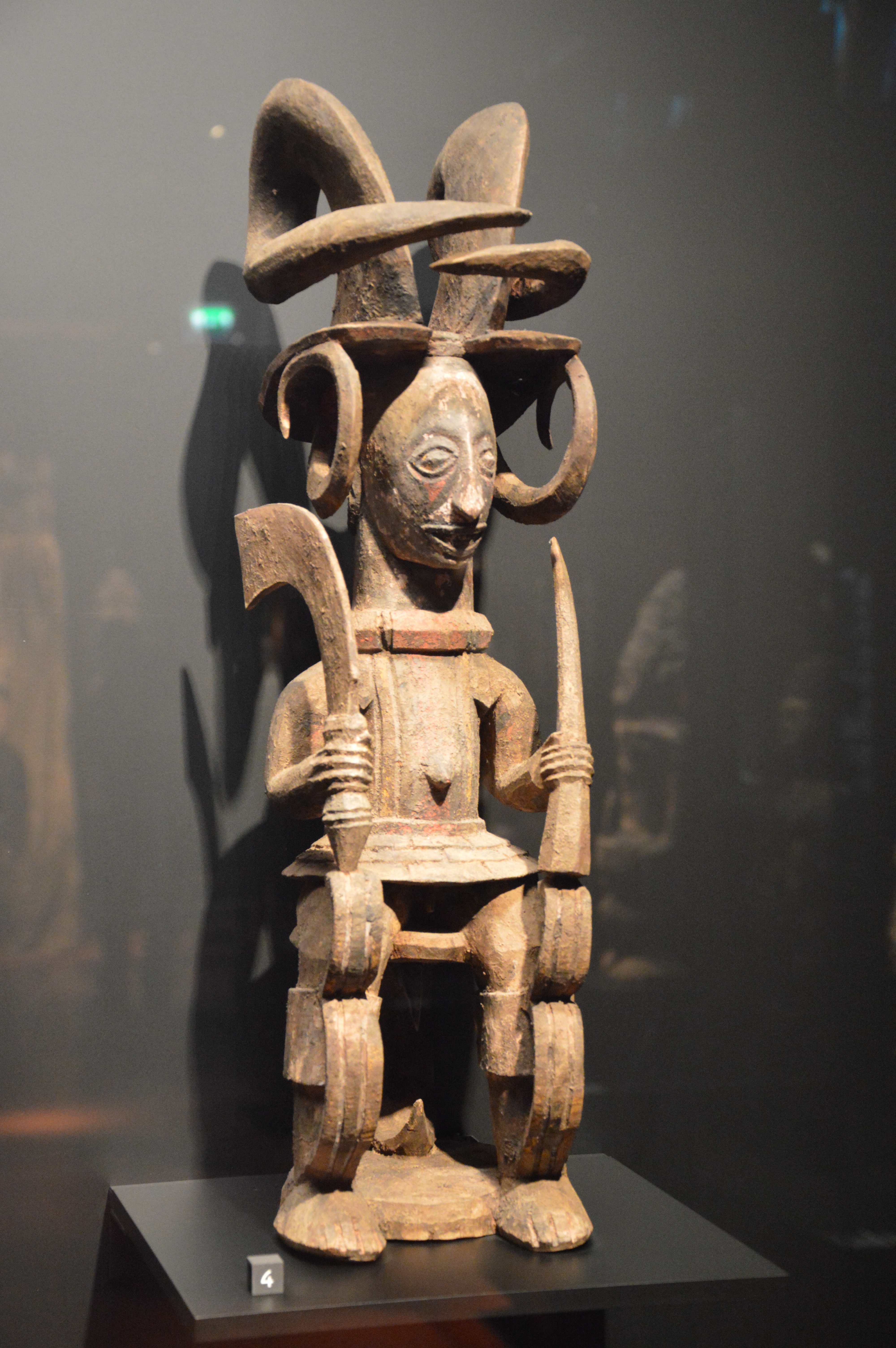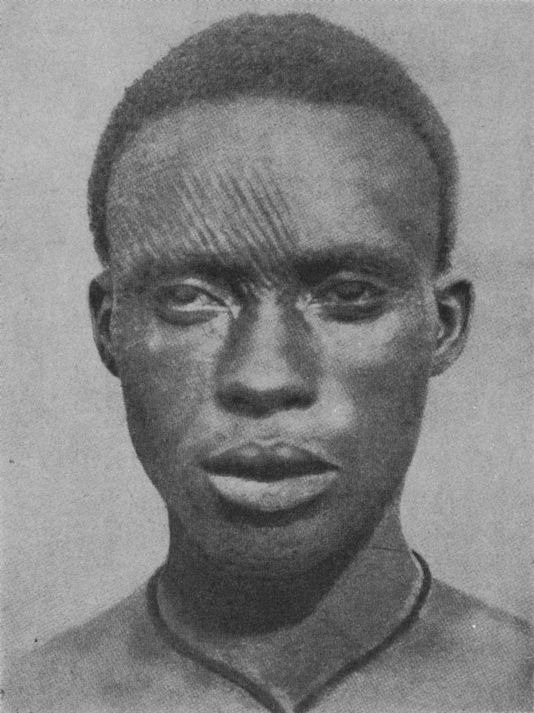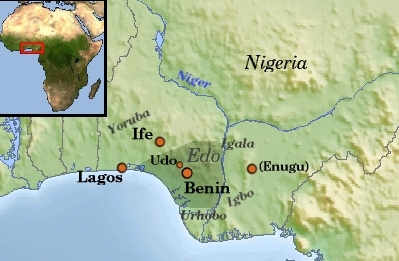|
Ikenga
Ikenga (Igbo literal meaning "strength of movement") is a horned Alusi found among the Igbo people in southeastern Nigeria. It is one of the most powerful symbols of the Igbo people and the most common cultural artifact. Ikenga is mostly maintained, kept or owned by men and occasionally by women of high reputation and integrity in the society. It comprises someone's ''Chi'' (personal god), his ''Ndichie'' (ancestors), ''aka Ikenga'' (right hand), ''ike'' (power) as well as spiritual activation through prayer and sacrifice. Ikenga is exclusively an Igbo symbol. Nevertheless, various peoples of Southern Nigeria have slightly different notions of the components of an individual personality, but all agree that these various aspects can only be affected through ritual and personal effort. Some variants of it are found in Ijaw, Ishan, Isoko, Urhobo and Edo areas. Among the Isoko people, there are three types of personal shrine images: ''Oma'', which represents the "spirit double" t ... [...More Info...] [...Related Items...] OR: [Wikipedia] [Google] [Baidu] |
Alusi
Arusi (also spelled Alusi or Arunsi) are spirits that are worshiped and served in the Igbo religion. There are many different Arusi and each has its own purpose and function. Ancestors The Igbo world is divided into several interconnected realms, principal among them being the realm of the living, the realm of the dead or of the ancestors, and the realm of the unborn. Individuals who led an honorable life and received a proper burial proceeded to the ancestral realm to take their place among the ancestors ("''Ndichie''"), who are separate from the Arusi. From there they kept a watchful eye on the clan and visited their loved ones among the living with blessings such as fertility, good health, longevity, and prosperity. In gratitude the living offered sacrifices to them at the family hearth, and sought their counsel. Arusi worship Each major Arusi has a priest in every town that honors it, and the priest is assisted by a group of acolytes and devotees. Children and Arusi Childre ... [...More Info...] [...Related Items...] OR: [Wikipedia] [Google] [Baidu] |
Horned Deities
Deities depicted with horns or antlers are found in many religions across the world. In religions that venerate animal deities, horned bulls, goats, and rams may be worshiped as deities or serve as the inspiration for a deity's appearance. Many pagan religions include horned gods in their pantheons, such as Pan in Greek mythology and Ikenga in Odinala. Some neopagan religions have constructed these deities as the Horned God, representing the male part of their duotheistic theological system. In Abrahamic religions, horned deities are closely associated with demonology. Christian demons are described as having horns in the Book of Revelation, and other demons such as Satan, Baphomet, and Beelzebub are typically portrayed with horns. Horned goddess Hathor Hathor is commonly depicted as a cow goddess with head horns in which is set a sun disk with Uraeus. Twin feathers are also sometimes shown in later periods as well as a necklace. Hathor may be the cow goddess who is depic ... [...More Info...] [...Related Items...] OR: [Wikipedia] [Google] [Baidu] |
Igbo People
The Igbo people ( , ; also spelled Ibo" and formerly also ''Iboe'', ''Ebo'', ''Eboe'', * * * ''Eboans'', ''Heebo''; natively ) are an ethnic group in Nigeria. They are primarily found in Abia, Anambra, Ebonyi, Enugu, and Imo States. A sizable Igbo population is also found in Delta and Rivers States. Large ethnic Igbo populations are found in Cameroon, Gabon, and Equatorial Guinea, as well as outside Africa. There has been much speculation about the origins of the Igbo people, which are largely unknown. Geographically, the Igbo homeland is divided into two unequal sections by the Niger River—an eastern (which is the larger of the two) and a western section. The Igbo people are one of the largest ethnic groups in Africa. The Igbo language is part of the Niger-Congo language family. Its regional dialects are somewhat mutually intelligible amidst the larger "Igboid" cluster. The Igbo homeland straddles the lower Niger River, east and south of the Edoid and Idomoid gr ... [...More Info...] [...Related Items...] OR: [Wikipedia] [Google] [Baidu] |
Smithing Gods
This is a list of deities associated with blacksmiths and craftspeople. African religions Egyptian mythology * Ptah, patron god of craftsmen and architects Igbo * Ikenga, Alusi of time, success, achievement, farming, blacksmiths, and industry Yoruba * Ogun, patron god of warriors, soldiers, blacksmiths, metal workers, and craftsmen Asian religions Arabian * Qaynan, Sabean patron god of smiths Hindu * Ribhus * Vishvakarman, architect of the gods Japanese * Kagu-tsuchi, patron god of blacksmiths, ceramic workers, and fire Meitei * Pisatao, god of architecture and crafts Ugaritic * Kothar-wa-Khasis, patron god of metalworking European religions Celtic * Brigid, goddess of spring, blacksmiths, fertility, healing, and poetry *Gobannus, Gallo-Roman deity whose name means 'the smith' * Gofannon, Welsh god of blacksmithing, ale, architecture and building * Goibniu, Irish god of blacksmithing, one of the Trí Dée Dána * Lugh, god of craftsmen, games, arts, oaths, truth, and law Ci ... [...More Info...] [...Related Items...] OR: [Wikipedia] [Google] [Baidu] |
Horned God
The Horned God is one of the two primary deities found in Wicca and some related forms of Neopaganism. The term ''Horned God'' itself predates Wicca, and is an early 20th-century syncretic term for a horned or antlered anthropomorphic god partly based on historical horned deities. The Horned God represents the male part of the religion's duotheistic theological system, the consort of the female Triple goddess of the Moon or other Mother goddess. In common Wiccan belief, he is associated with nature, wilderness, sexuality, hunting, and the life cycle. Whilst depictions of the deity vary, he is always shown with either horns or antlers upon his head, often depicted as being theriocephalic (having a beast's head), in this way emphasizing "the union of the divine and the animal", the latter of which includes humanity. In traditional Wicca (British Traditional Wicca), he is generally regarded as a dualistic god of twofold aspects: bright and dark, night and day, summer and ... [...More Info...] [...Related Items...] OR: [Wikipedia] [Google] [Baidu] |
Ichi (scarification)
Ichi was facial ritual scarification worn by mainly men of the Igbo people of Nigeria. The scarification indicated that the wearer had passed through initial initiation into the aristocratic ''Nze na Ozo'' society, thus marking the wearer as nobility. Echoes of this tradition are found in the contemporary derivative word Ichie, which denotes a member of a class of Nigerian chieftaincy, titled chieftains amongst the Igbo. History The scarification was found among men in the Awka-Nri areas and among a few women in the Awgu, Awgwu and Nkanu areas. Its wearers were authorized to perform ritual cleansing of abominations and to confer titles on people. People with facial marks were regarded as Nri-Igbo, Nri men and were less likely to be taken as slaves. Other parts of Igbo land may have started wearing Ichi as a result of this. There are two styles; the Kingdom of Nri, Nri style worn in the Awka-Nri areas, and the Agbaja style worn in the Awgwu and Nkanu areas. In the Nri style, the car ... [...More Info...] [...Related Items...] OR: [Wikipedia] [Google] [Baidu] |
War Gods
A war god in mythology associated with war, combat, or bloodshed. They occur commonly in both monotheistic and polytheistic religions. Unlike most gods and goddesses in polytheistic religions, monotheistic deities have traditionally been portrayed in their mythologies as commanding war in order to spread religion. (The intimate connection between "holy war" and the "one true god" belief of monotheism has been noted by many scholars, including Jonathan Kirsch in his book ''God Against The Gods: The History of the War Between Monotheism and Polytheism'' and Joseph Campbell in ''The Masks of God, Vol. 3: Occidental Mythology''.) The following is a list of war deities: North Africa Egyptian *Anhur, god of war, not a native god * Bast, cat-headed goddess associated with war, protection of Lower Egypt and the pharaoh, the sun, perfumes, ointments, and embalming *Horus, god of the king, the sky, war, and protection *Maahes, lion-headed god of war *Menhit, goddess of war, "she wh ... [...More Info...] [...Related Items...] OR: [Wikipedia] [Google] [Baidu] |
Fortune Gods
Fortune may refer to: General * Fortuna or Fortune, the Roman goddess of luck * Luck * Wealth * Fortune, a prediction made in fortune-telling * Fortune, in a fortune cookie Arts and entertainment Film and television * ''The Fortune'' (1931 film), a French film * ''The Fortune'', a 1975 American film * Fortune TV, Burma * '' Fortune: Million Pound Giveaway'', a 2007 UK TV programme * "Fortune" (''Smallville''), a US TV episode Music * Fortune Records, 1946–1995 * Fortune (band), 1980s, US * The Fortunes, an English harmony beat group * ''Fortune'' (Beni album), 2011 * ''Fortune'' (Callers album) and its title song, 2008 * ''Fortune'' (Chris Brown album), 2012 * "Fortune" (song), by Nami Tamaki, 2005 * "Fortune", a song by Emma Pollock from ''Watch the Fireworks'', 2007 * "Fortune", a song by Great Big Sea from ''Sea of No Cares'', 2002 Sports and games * Fortune (''Metal Gear''), a video game character * Fortune (professional wrestling) Theatres * Fortune Playhouse, a t ... [...More Info...] [...Related Items...] OR: [Wikipedia] [Google] [Baidu] |
Igbo Language
Igbo ( , ; Igbo: ''Ásụ̀sụ́ Ìgbò'' ) is the principal native language cluster of the Igbo people, a meta-ethnicity from Southeastern Nigeria. The number of Igboid languages depends on how one classifies a language versus a dialect, so there could be around 15 different Igboid languages. The core Igbo cluster or Igbo proper is generally thought to be one language but there is limited mutual intelligibility between the different groupings (north, west, south and east). A standard literary language termed 'Igbo izugbe' (meaning "general igbo") was generically developed and later adopted around 1972, with its core foundation based on the Owerri (Isuama), Anambra (Awka) and Umuahia (Ohuhu) dialects, omitting the nasalization and aspiration of those varieties. However, nobody speaks "general Igbo" natively and it isn't accepted by all Igbo groups. The largest variety of the core Igbo cluster is Ngwa. History The first book to publish Igbo terms was ''History of the Missio ... [...More Info...] [...Related Items...] OR: [Wikipedia] [Google] [Baidu] |
Igbo Gods
Igbo may refer to: * Igbo people, an ethnic group of Nigeria * Igbo language, their language * anything related to Igboland, a cultural region in Nigeria See also * Ibo (other) * Igbo mythology * Igbo music * Igbo art * * Igbo-Ukwu, a town in the Nigerian state of Anambra * Ijebu Igbo, a town in the Nigerian state of Ogun * Igbo bu Igbo {{Disambiguation Language and nationality disambiguation pages ... [...More Info...] [...Related Items...] OR: [Wikipedia] [Google] [Baidu] |
Will-o-wisp
In folklore, a will-o'-the-wisp, will-o'-wisp or ''ignis fatuus'' (, plural ''ignes fatui''), is an atmospheric ghost light seen by travellers at night, especially over bogs, swamps or marshes. The phenomenon is known in English folk belief, English folklore and much of European folklore by a variety of names, including jack-o'-lantern, friar's lantern, hinkypunk and is said to mislead travellers by resembling a flickering lamp or lantern. In literature, will-o'-the-wisp metaphorically refers to a hope or goal that leads one on, but is impossible to reach, or something one finds strange or sinister. Wills-o'-the-wisp appear in folk tales and traditional legends of numerous countries and cultures; notable wills-o'-the-wisp include St. Louis Light in Saskatchewan, the Spooklight in Southwestern Missouri and Northeastern Oklahoma, the Marfa lights of Texas, the Naga fireballs on the Mekong in Thailand, the Paulding Light in Upper Peninsula of Michigan and the Hessdalen light in No ... [...More Info...] [...Related Items...] OR: [Wikipedia] [Google] [Baidu] |
Bini People
The Edo or Benin people are an Edoid ethnic group primarily found in Edo State, Southern part of Nigeria. They speak the Edo language and are the descendants of the founders of the Benin Empire. They are closely related to other ethnic groups that speak Edoid languages, such as the Esan, the Afemai, the Isoko, and the Urhobo. The name "Benin" (and "Bini") is a Portuguese corruption, ultimately from the word "Ubini", which came into use during the reign of Oba (ruler) Ewuare the Great, c. 1440. "Ubini", a word meaning Vexation, used by Prince Oranmiyan, son of the wealthy ruler of Uhe (Ife) to describe the frustration he encountered after he was invited to rule benin. ''Ubini'' was later corrupted to ''Bini'' by the mixed ethnicities living together at the centre; and further corrupted to ''Benin'' around 1485 when the Portuguese began trade relations with Oba Ewuare giving them coral beads. History Administrative region Edo people can be found in Nigeria's Edo Sta ... [...More Info...] [...Related Items...] OR: [Wikipedia] [Google] [Baidu] |







